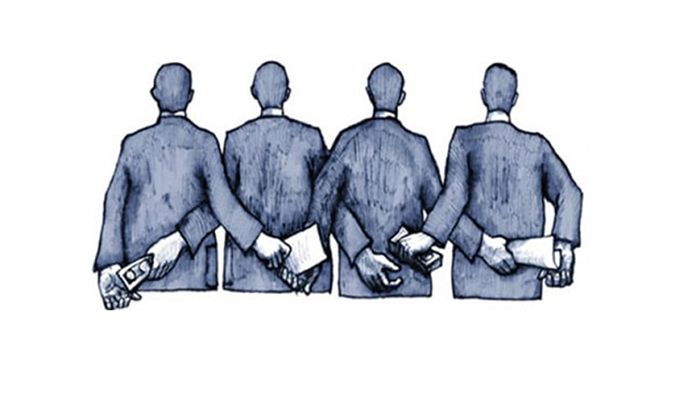
Desk Report
Publish: 09 Oct 2021, 07:27 pm

Representational Image || Photo; Collected
Corruption is grappled in the education sector in
Bangladesh. From the Thana Education Office to the Regional Education Office,
Shiksha Bhaban and even various departments of the Ministry, there is a reign
of bribery.
Retired teachers are also required to pay bribes to
withdraw their pensions, including student admission, teacher recruitment,
transfer, posting, MPO enrollment of teachers, approval of educational
institutions, nationalization. There is boundless corruption in every step of
construction, repair, purchase and supply of educational institutions. There is
no aspect of the education sector where the infections of corruption have not
spread. And this corruption is one step ahead at the secondary level. And these
have been published in the research report of TIB.
This information can be obtained from the field level
data collection till May-October 2019, and from the next 15 September 2021 data
collection, analysis and report from indirect sources.
Irregular corruption in the implementation of secondary
education activities. Financial transactions are made for teacher recruitment,
transfer, MPO registration, shopping, institution inspection and infrastructure
allocation. Among them, MPO-registered school-college principals, headmasters
and assistant headmasters have to pay illegal bribes ranging from Tk 3.5 lakh
to Tk 15 lakh. This money has to be paid to the local political leader, the
steering committee. This information has come up in the research report of
Transparency International Bangladesh (TIB).
This information has been published in the report titled
'Implementation of Secondary Education Activities: Challenges of Good
Governance and Ways to Overcome It'.
According to the report, assistant teachers recommended by the Non-Government Teachers Registration and Certification Authority (NTRCA) also have to pay a bribe of Taka two to three lakh to join. This money has to be paid to the head teacher or the management committee. Teachers have to pay from five thousand to one lakh taka for MPO registration. All the teachers of the educational institutions concerned have to pay one month's MPO for the inspection and audit of the educational institutions. This money has to be paid to the concerned officer of the Department of Inspection and Audit (DIA). One to two lakh taka has to be paid to transfer a government school teacher. This money has to be paid to the middlemen, officials and employees of the Department of Secondary and Higher Education. It is illegal to pay tk 1 lakh to tk 5 lakh for permission to teach at an institution and tk 5,000 to tk 30,000 for recognition. This means that in the conventional sense these are bribes. The report shades a picture of various irregularities, limitations and good and bad in secondary education.
Teachers and employees are included in the list of MPOs
through corruption and irregularities by violating the policy on MPOs. Although
the MPO process is decentralized and online, the document has to be advanced in
four places with ‘gifts’ or ‘honors’. Four steps namely- Head of Institution,
Upazila Secondary Education Office, District Education Office, Deputy
Director's Office do not move the file without money. Failure to pay will
result in errors in the application, non-progress of the application and delay.
Dr. Iftekharuzzaman, Executive Director, TIB, said that
there are challenges in every aspect of good governance in the implementation
of secondary education activities.
He added that the study shows that despite various
positive steps taken by the government to expand or improve the quality of
secondary education, there is still a shortfall in achieving the expected
excellence in the sector.
Although there was a national education policy in 2010, many important issues have not been implemented yet. The education law has not been enacted yet as it has not been given priority in principle. Although the allocation of the education sector in the national budget is not in line with international standards and the allocation of the secondary and higher education departments is gradually increasing, it is on average between five and a half to six and a half percent of the national budget. Adequate facilities are missing for teachers and staff. Lack of integrated manpower structure and lack of manpower capacity in the implementation of administrative activities at the field level of secondary and higher education is witnessed. Irregularities and corruption are spreading as a result of lack of steps to ensure accountability and transparency, and allegations of political influence, irregularities and financial corruption in the education process continue.
Subscribe Shampratik Deshkal Youtube Channel
Topic : Secondary Education Sector Corruption
© 2024 Shampratik Deshkal All Rights Reserved. Design & Developed By Root Soft Bangladesh